Protecting the Planet Through Compassionate Investing
Some of the highest performing companies today are those that actively take steps to minimize their impact on the natural world and reduce their reliance on unsustainable production processes. By investing in companies that prioritize biodiversity protection, climate change mitigation, and animal welfare, investors not only encourage good corporate behavior but help protect the health of our planet for future generations.
A pioneer in compassionate investing, Karner Blue Capital employs a rigorous proprietary research process that seeks to identify companies that are leading their respective industries with respect to the treatment of animals and the protection of natural animal habitats, as these are key but often overlooked components in the battle against climate change. KBC’s research models utilize industry-specific key performance indicators that are designed to measure the extent to which a company is engaged in:
1. Developing and implementing production processes and/or distribution systems that treat animals with higher standards of care;
2. Preserving, and actively contributing to the health of, ecosystems and natural animal habitats by, among other things, efficiently using water, energy and other natural resources and minimizing air, water, and soil pollution;
3. Helping to minimize the harm inflicted on animals by developing, manufacturing, or distributing products or furnishing services that reduce, replace or refine the use of animals in their business operations and/or improve air, water and soil quality; or
4. Providing solutions to global challenges that adversely impact wildlife, the natural habitats of animals, or animals in captivity.
Leading the Way
An example of a high-performing company that meets Karner Blue Capital’s standards is Australian iron ore miner, Fortescue Metals Group Ltd. The company integrates biodiversity protection into its business processes and treats the protection of the numerous wildlife species affected by its operations as a priority.
Fortescue’s Conservation Significant Fauna Management Plan (FMP) details its extensive monitoring efforts and support of all significant animal species in the vicinity of its four Australian mines. According to the document, “[T]he primary objectives … are to identify impacts, conserve significant fauna species and develop management and monitoring measures that maximize the ongoing protection, and long-term conservation, of these species within, and adjacent to Fortescue controlled sites. A similar focus is applied to understanding inland aquatic features adjacent to its operations.”
The company has developed maps that detail the precise location of wildlife habitats impacted by its operations, strongly emphasizing species such as the night parrot, northern quoll, and Pilbara olive python. It has implemented a sophisticated monitoring system to collect information on biodiversity throughout the area.
Fortescue’s efforts are not confined to species living aboveground. Australia’s Pilbara region, where the company operates, is the habitat of approximately 3,000 subterranean species. The company has undertaken 17 complex surveys and DNA analyses of these fauna. Using the massive amounts of information it collects on species throughout the region allows Fortescue to manage fauna in a progressive manner, providing a model of corporate behavior that other companies should replicate.
Protecting Nature to Protect Ourselves
Prioritizing the protection of biodiversity and natural animal habitats plays a critical role in protecting human life and improving the overall welfare of our society. Research indicates that up to 60% of new infectious diseases in humans originated in animals and one in three new outbreaks are related to deforestation and other land-use changes. As natural animal habitats are destroyed to make room for activities such as palm oil production, logging, cattle ranching and utility expansion, the risk of future pandemics from zoonotic viruses like COVID-19 increases with the growing frequency of human-wildlife interactions. It is therefore increasingly evident that prioritizing the protection of nature and the environment plays a vital role in reducing risks to humans and improving quality of life around the world.
We believe that forward-looking companies that understand the symbiotic relationship between humankind and the natural environment can better position their businesses for growth and success in today’s marketplace. Corporations have a responsibility to apply their global reach and economic power to solve our planet’s sustainability challenges — and investors in those corporations should embrace their power to spur a societal transition to a world in which people learn to live in harmony with nature. Against this backdrop, our goal is to provide environmental, social and governance (ESG) investment strategies with competitive returns that enable investors who care about the treatment of animals, the degradation of their habitats, and the planetary risks posed by declining biodiversity to align their investments with their values.
DISCLOSURE: As of the date of this blog, Karner Blue Capital (“KBC”) held positions in Fortescue Metals Group, Ltd. on behalf of its clients. Securities issued by the companies identified or described in this blog do not represent all of the securities purchased, sold or recommended by KBC for its advisory clients, and readers should not assume that investments in the securities issued by the identified companies were or will be profitable. KBC and some of its partners may hold positions in certain securities issued by the companies identified in this blog in corporate and/or personal accounts. As fiduciaries, KBC prioritizes its clients’ interests above these corporate and personal accounts to avoid any conflict of interest in trading these commonly held securities.

